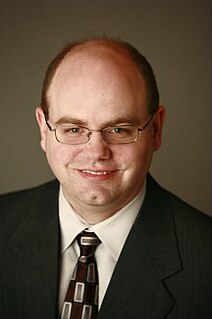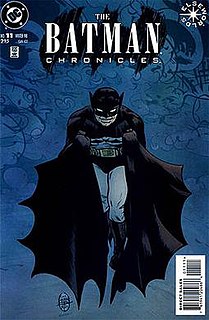On the action axiom
Decision theory and, hence, decision analysis are based on the maximum expected utility (MEU) action axiom. In general, the principle for action embodied by an action axiom (such as MEU) is highly defensible and its scope very broad.
The action-axiom is the basis of praxeology in the Austrian School, and it is the proposition that all specimens of the species Homo sapiens, the Homo agens, purposely utilize means over a period of time in order to achieve desired ends. In Human Action , Ludwig von Mises defined “action” in the sense of the action axiom by elucidating:
Human action is purposeful behavior. Or we may say: Action is will put into operation and transformed into an agency, is aiming at ends and goals, is the ego's meaningful response to stimuli and to the conditions of its environment, is a person's conscious adjustment to the state of the universe that determines his life. Such paraphrases may clarify the definition given and prevent possible misinterpretations. But the definition itself is adequate and does not need complement of commentary. [1]
The Austrian School is a heterodox school of economic thought that advocates strict adherence to methodological individualism, the concept that social phenomena result exclusively from the motivations and actions of individuals. Austrians school theorists hold that economic theory should be exclusively derived from basic principles of human action.

Murray Newton Rothbard was an American economist of the Austrian School, economic historian and political theorist. Rothbard was a founder and leading theoretician of anarcho-capitalism and a central figure in the 20th-century American libertarian movement. He wrote over twenty books on political theory, history, economics, and other subjects.

Teleology or finality is a reason or an explanation for something which serves as a function of its end, its purpose, or its goal, as opposed to something which serves as a function of its cause. A purpose that is imposed by a human use, such as the purpose of a fork to hold food, is called extrinsic.

Henry Stuart Hazlitt was an American journalist who wrote about business and economics for such publications as The Wall Street Journal, The Nation, The American Mercury, Newsweek, and The New York Times.
The Ludwig von Mises Institute for Austrian Economics, or Mises Institute, is a libertarian nonprofit think tank located in Auburn, Alabama, United States. It is named after Austrian School economist Ludwig von Mises (1881–1973).

Human Action: A Treatise on Economics is a work by the Austrian economist and philosopher Ludwig von Mises. Widely considered Mises' magnum opus, it presents the case for laissez-faire capitalism based on praxeology, his method to understand the structure of human decision-making. It rejects positivism within economics. It defends an a priori epistemology and underpins praxeology with a foundation of methodological individualism and laws of apodictic certainty. Mises argues that the free-market economy not only outdistances any government-planned system, but ultimately serves as the foundation of civilization itself.
In philosophy, praxeology or praxiology is the theory of human action, based on the notion that humans engage in purposeful behavior, as opposed to reflexive behavior and other unintentional behavior.
Ruritania is a fictional country, originally located in central Europe as a setting for novels by Anthony Hope, such as The Prisoner of Zenda (1894). Nowadays the term connotes a quaint minor European country, or is used as a placeholder name for an unspecified country in academic discussions. The first known use of the demonym Ruritanian was in 1896.

Laziness is disinclination to activity or exertion despite having the ability to act or to exert oneself. It is often used as a pejorative; terms for a person seen to be lazy include "couch potato", "slacker", and "bludger". Related concepts include sloth, a Christian sin, and lethargy, a state of lacking energy.
Criticism of socialism is any critique of socialist models of economic organization and their feasibility as well as the political and social implications of adopting such a system. Some critiques are not directed toward socialism as a system, but rather toward the socialist movement, parties or existing states. Some critics consider socialism to be a purely theoretical concept that should be criticized on theoretical grounds while others hold that certain historical examples exist and that they can be criticized on practical grounds. Because there are many models of socialism, most critiques are focused on a specific type of socialism and the experience of Soviet-type economies that may not apply to all forms of socialism as different models of socialism conflict with each other over questions of property ownership, economic coordination and how socialism is to be achieved. Critics of specific models of socialism might be advocates of a different type of socialism.
The non-aggression principle (NAP), also called the non-aggression axiom, is a concept in which aggression, defined as initiating or threatening any forceful interference against either an individual, their property or against promises (contracts) for which the aggressor is liable and in which the individual is a counterparty, is inherently wrong. There is no single or universal interpretation or definition of the NAP, with different definitions varying in regards to how to treat intellectual property, force, abortion, and other topics.

Robert Patrick Murphy is an American economist. Murphy is Research Assistant Professor with the Free Market Institute at Texas Tech University. He has been affiliated with Laffer Associates, the Pacific Research Institute, the Institute for Energy Research (IER), the Independent Institute, the Ludwig von Mises Institute, and the Fraser Institute.

Ludwig Heinrich Edler von Mises was an Austrian School economist, historian, logician, and sociologist. Mises wrote and lectured extensively on the societal contributions of classical liberalism. He is best known for his work on praxeology studies comparing communism and capitalism. He is considered one of the most influential economic and political thinkers of the 20th century.

For a New Liberty: The Libertarian Manifesto is a book by American economist and historian Murray Rothbard, in which the author promotes anarcho-capitalism. The work has been credited as an influence on modern libertarian thought and on part of the New Right.

Fiat iustitia, et pereat mundus is a Latin phrase, meaning "Let justice be done, though the world perish".

"The Berlin Batman" is an Elseworlds tale published in The Batman Chronicles #11 in 1998 by DC Comics. It is written and illustrated by Paul Pope.
In Austrian business cycle theory, malinvestments are badly allocated business investments due to artificially low cost of credit and an unsustainable increase in money supply. Central banks are often blamed for causing malinvestments, such as the dot-com bubble and the United States housing bubble. Austrian economists such as the Swedish central bank's Nobel Memorial Prize in Economic Sciences laureate F. A. Hayek advocate the idea that malinvestment occurs due to the combination of fractional reserve banking and artificially low interest rates misleading relative price signals which eventually necessitate a corrective contraction – a boom followed by a bust.
In praxeology, thymology is the study of those human aspects that precede or cause purposeful human behavior.

Theory and History: An Interpretation of Social and Economic Evolution is a treatise by Austrian school economist and philosopher Ludwig von Mises. It can be thought of as a continuation in the development of the Misesian system of social science. In particular, it provides further epistemological support for his earlier works, esp. Human Action. Most notably, Mises elaborates on methodological dualism, develops the concept of thymology – a historical branch of the sciences of human action – and presents his critique of Marxist materialism.
In praxeology, methodological dualism is an epistemological position which states that it is necessary ─ based on our current state of knowledge and understanding ─ to use a different method in analysing the actions of human beings than the methods of the natural sciences.











